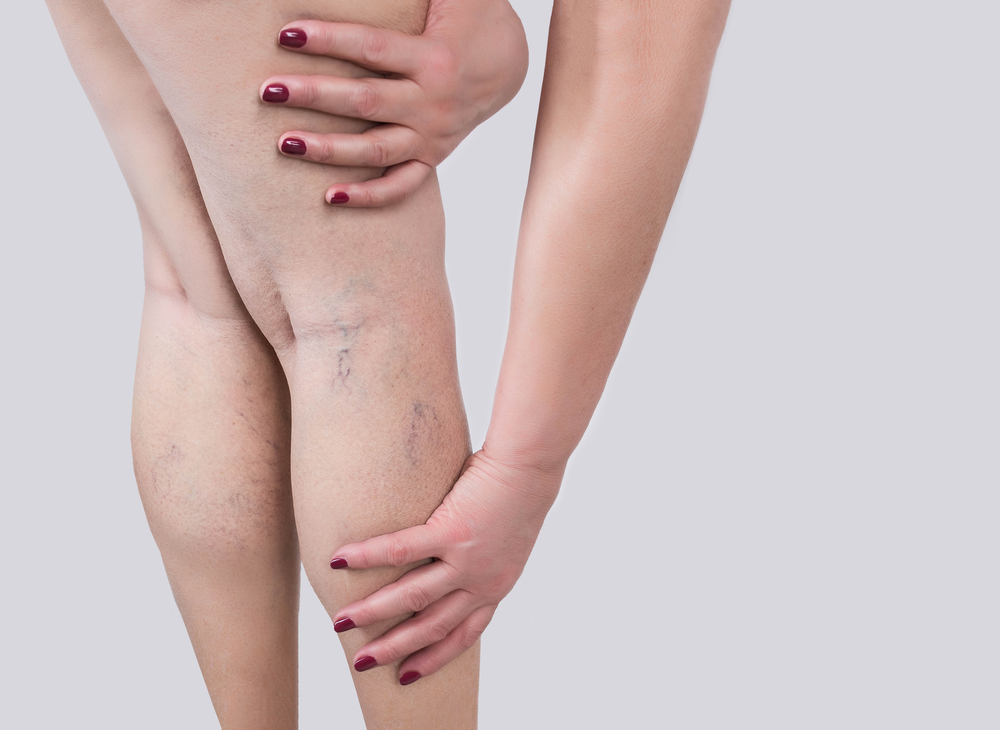Food Restrictions To Minimize Varicose Vein Symptoms
 Pain and discomfort from varicose veins and spider veins can quickly affect your daily life. At Vein & Laser Institute, we have a comprehensive understanding of cardiovascular health issues, and we offer our patients a variety of minimally invasive procedures to help treat vein issues.
In addition to having veins professionally treated, simple daily habits like exercising, staying hydrated, and avoiding certain foods can help minimize vein pain and symptoms.
Pain and discomfort from varicose veins and spider veins can quickly affect your daily life. At Vein & Laser Institute, we have a comprehensive understanding of cardiovascular health issues, and we offer our patients a variety of minimally invasive procedures to help treat vein issues.
In addition to having veins professionally treated, simple daily habits like exercising, staying hydrated, and avoiding certain foods can help minimize vein pain and symptoms.
Salt and Sodium
A person with varicose veins or spider vein pain should avoid consuming foods with high sodium levels when possible. Salt and sodium can affect blood pressure and blood thickness, making them triggers for anyone suffering from vein discomfort. Opt for low sodium varieties of foods to improve venous health issues.Fried Foods
Fried foods can not only worsen varicose veins, but they can also lead to a variety of other health conditions. Fried foods are high in fat and sodium contact while offering little-to-no nutritional value. Fresh and nutrient-rich foods are always the better option for anyone looking to improve their overall health.Canned Food
Cans used in canned goods are lined with the chemical Bisphenol A, which can disturb the body’s hormones. Not only can this harmful chemical lead to more varicose veins or spider veins to appear, but it also exacerbates existing vein issues and causes a heightened risk of heart and cardiovascular diseases. Bisphenol A, also known as BPA, is also used to make certain plastics often used to store foods and beverages in stores. Prioritize eating fresh produce to avoid exposure to BPA.Refined and Simple Carbohydrates
White bread, rice, and some pasta can lead to health issues due to refined and simple carbohydrates. Opt for a fiber-rich diet and complex carbohydrates like oats, multigrain wheat, and brown rice. These simple everyday swaps can lessen varicose vein symptoms and improve overall vein health.Excessive Sugars
Processed foods like candy, cakes, cookies, and crackers cause a spike in blood sugar, negatively impacting the circulatory system. Nourishing your body with natural sugars found in fresh fruits works to slowly release the sugar into the bloodstream, which can help with vascular health.Alcohol
Consuming alcohol, whether in moderation or excess, can cause varicose veins to develop. Alcohol leads to dehydration, and when the body is dehydrated, the circulatory system is challenged to move blood through the body. This causes more pressure on the venous system, which can worsen venous pain.Signs and Symptoms of Varicose Veins
Varicose veins are much more than a cosmetic issue or a sign of aging. When varicose veins and symptoms are present, it can indicate Chronic Venous Insufficiency (CVI). Signs of varicose veins- Bulging large veins that are visible just under the surface of the skin
- Swelling of your ankles and feet that worsens throughout the day
- Painful, achy, or heavy feeling in the legs
- Throbbing or cramping in your legs
- Itchy legs, especially on the lower leg and ankle
- Discolored skin below the knees, especially around the ankles
- Leg pain, aching, swelling, heaviness, or fatigue
- Burning or itching of legs
- Ankle discoloration, ulcers, open wounds, or sores
- Restless leg syndrome or cramps
- Bleeding from varicose veins
- Clots in the varicose veins
When Dietary Changes Aren’t Enough
Avoiding unhealthy foods can have many benefits, not only on your vascular health but your overall health, too. Eating fresh, nutritious foods whenever possible can be easy. Simply changing how you look at foods and reading labels before purchasing is a great first step in improving your body’s overall health through dietary choices. If you’re ready to have your varicose veins removed, schedule a vein consultation with Vein & Laser Institute today. We can develop a personalized treatment plan and determine which method will be best for removing your varicose veins or spider veins. Contact us today to schedule an appointment.Recent Posts



